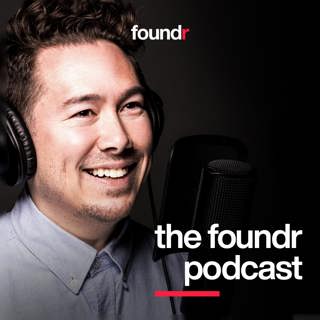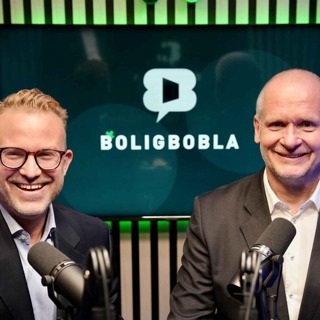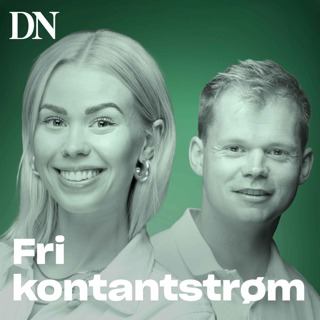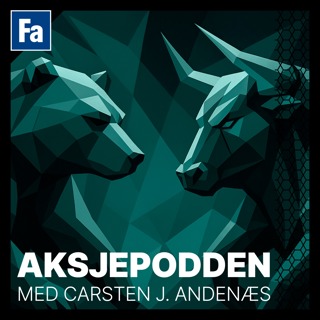
343: How To Find The Next Big Business Idea with Nextdoor Co-Founder Sarah Leary
For Sarah Leary, entrepreneurship has always been in her blood. Growing up in a household of small-business owners including her grandmother who was also an entrepreneur, she knew she would eventually be one, too. She remembers that even when she was working for Microsoft as part of the founding team for Microsoft Office, she knew that being a business owner was her future. From her development, launch, and successful scaling of Nextdoor into the world’s largest private social network for neighborhoods, Leary has experience in every aspect of entrepreneurialism. Her advice for budding entrepreneurs comes from years of experience in both scaling a business, building a community, and growing brands. In this interview with Nathan Chan, Leary reveals the absolute essentials every new entrepreneur needs to tick off when they want to start something new. As a venture partner at Unusual Ventures, Leary has advice straight from the frontline of what she wants to see in a pitch. Key Takeaways How Leary grew up in a household of business owners and entrepreneurs and why that means she always knew she would be one too Finding herself in the early start-up culture of Silicon Valley in the 90s Her first business and how she faced failure, the decision to pivot, and a whole new frontier The beginning of Nextdoor, and it’s growth internationally over the past decade Joining Unusual Ventures, and why she wants to dedicate her time to helping others build companies from the ground up Why founders need to be comfortable validating their ideas and assumptions The two essential questions entrepreneurs need to ask themselves before starting How Leary developed Nextdoor through a combination of brainstorming, customer research, and why you need to consider customer painkillers Why every entrepreneur needs to learn to do extraordinary work for a narrow band of people, and then expand How Leary fuelled the Nextdoor community, and why networks need leaders Why Leary believes authenticity is the most important part of community strategy, and why you need to start with it Why Leary stepped down from Nextdoor, and how the team of Unusual Ventures is rolling up their sleeves to help new entrepreneurs Leary’s reveals the secret to pitching ideas correctly, and what Unusual Ventures looks for in a new business idea
2 Feb 20211h 3min

342: How Alli Webb Turned Drybar Into A $100m Empire
When Alli Webb founded Drybar in 2010, it started as one small salon in Brentwood, California that was designed to do one thing and do it well: blowouts. Today, her brand has grown to over150 stores in 33 states, a hair care product line that she sold for over $250 million, her own podcast Raising The Bar, and a NY Times best-selling book Good Hair For All. Best of all, Webb is Foundr magazine’s cover girl for issue 95 (check it out, it’s a good one!) Guess you could say that Alli Webb is an entrepreneurial genius. This week’s interview gives you an insight into Webb’s journey from working as a receptionist in a hair salon during high school to the decision to chase her passion for hairstyling. That decision to pursue her passion is what has led Webb to a $100m empire. Find out how she took the leap, and what advice she has for those looking to pursue their passion, too. Key Takeaways Growing up in a family of entrepreneurs, and how that shaped Alli Webb’s idea of business Realised she had a passion for hair and styling, and worked as a receptionist in a hair salon where she became mesmorised by the craft Her journey through “a hot-minute” in college, to working in fashion in New York Starting her own business styling client’s hair at home, and growing her business How she started “Drybar” and what makes her brand unique Franchising Drybar, and learning to operate her business on a global scale How Webb developed her own product line, and how she sold it for $250m to beauty powerhouse, Helen of Troy. How Webb continues to raise the bar, launching her own podcast: Raising The Bar, and authoring NY Times Best Seller Good Hair For All Webb’s advice for all budding entrepreneurs, especially women in business, and why they need to follow their passion and what they love doing.
26 Jan 202152min

341: Pushing Your Limits with Mental Toughness King and Spartan CEO Joe De Sena
If you want to start a business, you sure as hell better be made of the right stuff. Because Joe De Sena is here to tell you that in business, “anything that can go wrong, will go wrong”, and you need to be mentally tough enough to handle it. In this Foundr interview like no other, Nathan Chan speaks with Spartan Race creator, best-selling author, and badass CEO Joe De Sena on why you need manufactured adversity. De Sena has faced mountains of failure in business and continues to rise, everything from losing someone during the first ever race and finding them marooned on a desert island a week later, to not turning a profit for 15 years. Nevertheless, this machine of a man bounces back and continues to rise. This interview is just a snapshot of what you can expect in Foundr’s newest course, Mental Toughness. Touted as the ultimate entrepreneurs field guide to building mental toughness, this is not one to be missed. Find out why the Olympic wrestling teams are sent to De Sena shape up, why billionaires send their children to him to learn discipline, and why active military personnel flock to him to learn grit.
19 Jan 202137min

340: How Gabi Lewis dominated a $40 billion industry
Gabi Lewis, Co-Founder, The Magic Spoon In this yummy episode, Gabi Lewis, Co-Founder of The Magic Spoon, sits down with Nathan Chan to discuss his journey from founding the revolutionary EXO protein snack made from crickets, to dominating the $40billion a year cereal industry. Listen in as Lewis reveals how he managed to get Tim Ferris and Nas as angel-investors onboard for EXO snacks, his journey into the competitive world of cereal, and how Magic Spoon continues to stay ahead of the competition. In this deep-dive interview, you’ll find out why Lewis swears by agencies, the opportunities in influencer marketing, and why product-fit is an absolute essential for any founder. Lewis’ incredible journey from crickets to cereal is a not-to-be-missed lesson in entrepreneurship and the importance of saying “no”. Key Takeaways How Lewis started Exo Protein, selling cricket protein bars Recognizing the paleo food trend and targeting that market How Lewis got angel investors such as Tim Ferris and Nas His decision to sell the company and launch Magic Spoon cereal Why Magic Spoon is a direct-to-consumer product and the advantages of ecommerce The successful launch of Magic Spoon and the power of influencers Why product-market fit is the most important aspect of launching a business How Magic Spoon was affected by Covid and the evolution of hiring and scaling The decision to not sell Magic Spoon on Amazon, and the power of customer-brand loyalty Why Lewis believes that a high-quality product is the most important aspect of any business Lewis’ advice to others that as a founder, you should never be distracted, and why your job is to say “no”
12 Jan 202155min

339: How GT Dave Started A $1Billion Kombucha Empire From His Bedroom
In this interview, Nathan Chan sits down with GT Dave, Founder and CEO of GT's Living Foods. GT discusses how he built a $1B empire from his bedroom and his journey of being the first seller of Kombucha in the United States. In this interview, GT Dave discusses how he first began selling Kombucha, entering the market with a completely new category of product, and the challenges he faced in educating the market on what his product was. GT Dave is a firm believer in passion before profit, and his integrity and commitment to health shine through as he discusses his childhood and nutrition, how Kombucha helped his mother through medical issues, and the proven benefits of Kombucha. With a personal net worth estimated at $1Billion, GT Dave’s journey will inspire you to follow your passion and begin building your future, today. Key Takeaways How GT Dave found an interest in Kombucha and how he began marketing it Launching his company from his bedroom, and selling his product using his Dad’s Amex card The challenge of entering the market with a new product and how he went about educating others on an unfamiliar health beverage How GT Dave helped Kombucha to become the global trend it is today GT Dave’s commitment to passion over profit, and what health means to him The importance of validating your product and communicating with consumers His key advice to those who are just getting started, and the questions you need to ask yourself
5 Jan 202151min

338: Foundr BEST OF 2020
In this epic roundup episode, we took our favorite moments from every interview this year and combined them to create our most jam-packed episode yet: Foundr Best of 2020! That’s right, in this very special episode, you’ll hear valuable insights from: Drew Houston, CEO and founder of DropBox: On problem-solving, his formula for success in business, and how he— as a billion-dollar CEO — still learns every single day. Dylan Mullen, Founder, and Director of Happy Skin Co. Mullen reveals how he built a $20 million dollar company in 24 months, and how they’re acquiring their customers. Alexa Von Tobel, Founder of Learnvest, & Inspire Capital: Why you shouldn’t spend a dollar on marketing, and what it takes to be a ‘good entrepreneur’. Gretta Van Riel, 4x Multi-Milion Dollar Founder. Van Riel discusses why she would spend $500k on a post from Kylie Jenner, and her $1.3m manufacturing horror story. Henrik Werderlin, founder and CEO of Barkbox, and the strategy that Apple and Amazon have used to build global, beloved brands. You’re about to learn the mistake that every new entrepreneur makes, as discussed by Alex Osterwalder, the Swiss business theorist who developed the “business model canvas”. Author Kamal Ravikant reveals why you don’t need a mentor (from someone who’s been down the road a few times). Christina Stembel, founder of Farmgirl Flowers on how she managed to turn $49,000 into almost a million dollars in 3 years— all thanks to the success of her company. Here’s Skillshare founder Malcolm Ong… who’s about to reveal the one word that will make you a better entrepreneur. Thor Ernstsson, Founder of Strata. The 2 tips that every single entrepreneur needs to hear. One of the internet’s greatest pioneers, cofounder of WordPress Matt Mullenweg on what motivates him. GT’s living foods founder, GT Dave. He reveals to us the key to staying on your path, and not losing your identity. Andy Frisella, founder of 1st Phorm with one of the most fired up conversations of the year. Enjoy this snippet where he’s going to tell you why building a brand is important, and the issue with comparing yourself to Steve Jobs.
30 Des 20201h

337: What A Future Billion Dollar Business Looks Like: With Google’s Lead Investor, David Lawee
Ever wondered what traits and characteristics Google looks for in a founder? Wonder no more, because in this interview, Nathan Chan sits down with CapitalG Founder, David Lawee, to discuss the journey of finding the next $1B Unicorn Business. David is Google's Lead Investor, and has over 13 years of experience under his belt working for one of the largest companies on the planet. Prior to joining Google, Lawee has been a serial entrepreneur. His biggest takeaway from the experience was how to successfully scale companies, and during the interview he finally reveals exactly how to do it. Lawee shares what he believes it takes to create a billion-dollar company. Lawee reveals all the traits and characteristics he looks for in founders when it comes to investing billions of dollars, and exactly what the company needs to look like. Key Takeaways How David Lawee found himself working for Google, CapitalG, and what he learned during his time as a serial entrepreneur The characteristics and traits that he looks for when it comes to investing The difference between an ordinary company, and the billion dollar unicorn Lawee’s advice for those looking to open more doors The change in the market, and an insider's view into Google investment world Lawee discusses how to align your company with investors’ needs
15 Des 202042min

336: Starting a Business During a Crisis with the founder of Alpha and Strata, Thor Ernstsson
Meet Thor Ernstsson. The founder of global giants such as Alpha, Strata, and lead architect for Zygna responsible for Farmville, Ernstsson knows business and products. In this interview, Nathan sits down with Ernstsson to discuss his journey from Zynga game developer, to creating a company that serves half of the Fortune 500. Honest and candid, Ernstsson reveals his decision-making processes behind some of the company's largest pivots, changes, and challenges. While most people would shy away from the idea of launching a business during a global crisis, Ernstsson is perhaps living proof that not only is it a good decision, it’s the best business decision one can make. Key Takeaways Thor Ernstsson discusses how he first began working at Zygna, and how he felt about the global success of Farmville His next business ventures, including Alpha and Strata Why he decided to pivot the company The importance of “now”, and why starting a business during a crisis is a good idea The decision to launch a business that aimed to connect people, while it was the start of the pandemic How to change the world, and why you should always aim to solve a problem that won’t change The importance of customers and why they need to be invested in your business’ success
8 Des 202053min






















